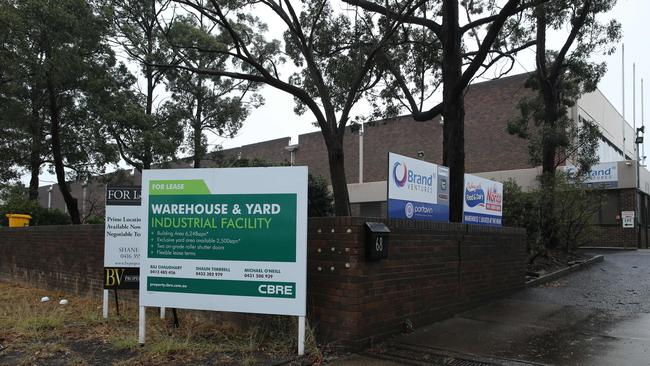New lease on life for McWilliam’s as administrators exit deal
Administrators of collapsed wine group McWilliam’s have torn up a 50-year lease partly blamed for its financial ruin.

Administrators of collapsed wine group McWilliam’s have torn up the company’s 50-year lease of a warehouse in the Sydney suburb of Chullora after it was cited as one of the triggers that led to its financial ruin.
The Weekend Australian revealed on Saturday that the lease of 68 Anzac Street, signed in 1974, was costing McWilliam’s about $3m a year following a recent valuation, and was one of the factors that prompted the company’s directors to call in KPMG as administrators.
McWilliam’s first creditors meeting was held on Monday at the Wesley Mission head office in Pitt Street, Sydney, attracting more than 40 creditors — including the landlord for 68 Anzac Street, Chullora — and a handful more on the phone.
The administrators have acted swiftly to exit the Chullora lease, labelling it onerous and non-core.
The 141-year-old company hasn’t used the site since 2017 and advertised to sublet it several times in the past three years. One agent even described the rent as “cheap” in an attempted to attract a tenant for McWilliam’s, and it is currently advertised with two leasing agents.
It is hoped that ending the lease, which was due to expire in May 2024, now will help in re-establishing McWilliam’s viability ahead of a sale or recapitalisation of the company, which the McWilliam’s family has owned for six generations. The Australian can reveal that already more than 70 parties from around Australia and overseas have expressed interest in acquiring McWilliam’s, which is known for producing a range of affordable wines, particularly its $13 flagons of sherry.
A formal sale process is expected to begin as early as next week.
McWilliam’s directors Doug L. McWilliam and DR McWilliam signed the Chullora lease on July 4, 1974 and agreed to pay 8.5 per cent of the unimproved value of the lots each year, with the site being revalued and the rent readjusted every three years.
Recent estimates value the property at about $30m, which translated to an annual rent bill of almost $3m, including about $300,000 in outgoings. The rent weighed heavily on the finances of the company, which was forced to seek a capital injection of $6.2m and the sale of assets last year after it breached lending covenants and made an annual loss of $5.8m, according to its latest accounts.
In addition, the lease stipulated McWilliam’s spend at least $1m — or $8.2m when adjusted for inflation — on building structures, fixtures and other improvements by 1976.
Current owner, boutique funds manager Pipeclay Lawson, bought the property from the original landlords, the Scheinberg family, for $15.75m in 2014, and said on its website that McWilliam’s had made “considerable improvements to the site, including a red brick warehouse facility with a gross lettable area of 19,910sq m”.
The “full economic benefit of the improvements will vest” into Pipeclay Lawson’s Chullora Land Trust when the lease ends. From December 2016 the trust has been paying its unitholders a distribution yield of 16.8 per cent. At the time of purchase the investment manager was targeting a total return to unitholders of 15 per cent (net of all fees and costs) over an investment term of nine years and six months.
While the Chullora lease did not solely lead to McWilliam’s collapse, it was a strong contributing factor.
McWilliam’s had been struggling financially for several years, notching up continued annual losses. It also had lost its international distributor, putting the brake on export opportunities.
Last year management attempted to recapitalise the company to begin a “premiumisation” strategy. Many wine producers — particularly members of Australia’s First Families of Wine, including McWilliam’s — have sought to produce more premium wines in an effort to seek higher margins.
But the $6.5m capital injection and asset sales weren’t enough to successfully launch McWilliam’s strategy.
The administrators are hopeful of securing McWilliam’s long-term viability. The administration period is expected to be extended until July 31 pending court approval, to allow enough time to deliver the 2020 vintage.




To join the conversation, please log in. Don't have an account? Register
Join the conversation, you are commenting as Logout